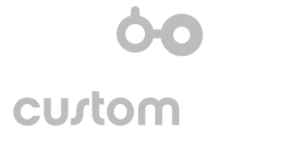80% of learning is visual. For infants and toddlers having trouble with their vision, the earliest stages of their learning could be negatively affected.
The earlier you can diagnose any problems with your baby’s eyes, the faster their quality of life and overall health can benefit from any necessary intervention.
Why Is Infant Eye Exam Important?
With infants under 12 months of age, their visual systems are learning how to focus and coordinate movement of both eyes. This allows them to track objects for proper motor function like crawling, walking, & hand-eye coordination.
Studies on the developmental effects of poor vision show that children with poor vision suffer from disadvantages in academic, social, and emotional learning. Since most of a baby’s development is based on their ability to see, we like to give families peace of mind.
Additionally, infant eye exams are important for determining eye health for any future vision care.
Comprehensive Infant Eye Assessment – InfantSEE®
As members of the American Optometric Association, our licensed eye doctors provide a one-time complimentary eye examination for infants as part of the InfantSEE Program. This public health program allows our team of optometrists to provide a comprehensive assessment of a baby as it develops its new vision skills.
Healthy eye development in a baby means:
- Aligned eye movement
- Ability to tracking objects or people
- Holding steady eye contact
- Pupils that constrict and dilate with changes in light
Signs of Vision Problems in Babies
- Random, jerky eye movement
- Eyes can’t track your face or an object across their field of vision
- Doesn’t make eye contact
- Eyes don’t react to bright lights
- Eye alignment has inward crossing or outward drifting
While these can point to issues with eye muscles, neuromotor skills, or cognitive development, they also aren’t necessarily proof of them. That’s why having a professionally trained eye specialist evaluate your infant is important. With a better understanding, any potential developmental problems can be solved to minimize long-term effects.
When Should Your Baby Have Their First Eye Exam?
According to the American Optometric Association, your child should have their eyes examined at key phases in their development:
- 6 months
- 3 years
- At the start of school
- Every two years after that
The signs won’t always be obvious, though. Remember, you’ll have to rely on observing your baby’s actions to notice if they’re experiencing issues with their vision. So, work with your baby and their developing eyesight.
Experienced Infant Optometrists
Each one of our pediatric eye doctors have years of managing infant eye care for families. We can diagnose and treat any early visions issues with our specialized training and equipment.

